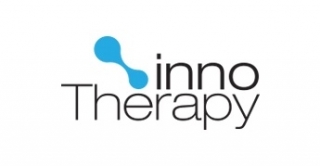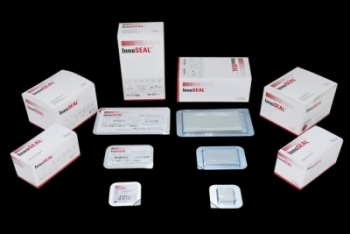기업
InnoTherapy is launching clinical trials for both surgical and endoscopic hemostatic agents simultaneously
바이오스펙테이터 Jongwon Jang 기자

InnoTherapy, a biotechnology company specialized in novel biomaterials, is launching two domestic clinical trials for product licensing of medical hemostatic agents used in various surgical and endoscopic procedures related to cancer and other diseases. These clinical trials are considered as important projects for the company to take a leap in that these hemostatic agents are expected to be widely used beyond their previous approval for local and external use.
According to industry sources, InnoTherapy has recently obtained MFDS’s approval of ‘InnoSEAL Plus' and 'ES-H-01' for clinical use. These two are developed as medical hemostatic agents. InnoTherapy has a bioadhesive-fusion platform technology that can cope with internal and external hemorrhage by fusing a catechol functional group (responsible for mussel's moisture adhesive power) with a polymer compound (chitosan).
Developed with support from the Ministry of Health and Welfare's Health as part of the Medical Technology Research and Development Project (Project Number HI16C0820), InnoSEAL Plus is a medical hemostatic agent for preventing rapid bleeding, massive bleeding, and perforation during surgery. This new clinical trial will be conducted at four hospitals (National Cancer Center, Pusan National University Hospital, Pusan National University Yangsan Hospital, and Samsung Seoul Medical Center) to validate the safety and efficacy of InnoSEAL Plus in patients who have difficulty in hemostasis during intraperitoneal surgery (hepatectomy). In this study, Takeda's surgical hemostatic agent 'TachoSil' will be included as a control for evaluation.
InnoSEAL Plus has a significance in that it will expand the area of 'InnoSEAL', which was licensed in 2015 as a local hemostatic dressing for external use, to internal use. Protein-based and fibrin glue-based medical hemostatic agents are currently dominating the market. They are expensive. In addition, they have limitations because their hemostatic efficacy is low in patients with massive bleeding or coagulation disorders such as hemophilia.
ES-H-01 clinical trial conducted at Bundang CHA Hospital is for licensing of an absorbable hemostatic device for internal use in response to hemorrhage resulting from removal of polyps during endoscopic procedures. Because the digestive system consists of acidic mucosal tissues, it is hard to control bleeding in digestive organs with existing hemostatic agents. For this reason, Argon Plasma Coagulation is the most commonly used method, in which plasma is irradiated and the resulting conductivity and heat are used for hemostasis. However, it has a few drawbacks in that it is difficult to aim the bleeding point precisely. In addition, necrosis of tissue causes pain in patients, leading to long recovery time.
A collaborative team composed of InnoTherapy and professor Ju-Young Cho’s research team (Digestive Internal Medicine) of Bundang CHA Hospital conducted a preclinical study by creating an artificial gastric ulcer bleeding model in pigs. In this study, ES-H-01 prevented recurrence of bleeding even under the condition of blood clotting disorder with heparin treatment, confirming its excellent hemostatic effect. Its fast tissue recovery effect was also observed.
Dr. Moon Sue Lee, CEO of InnoTherapy, said, "Currently, there are no therapeutic materials available for the mucous membrane region. Therefore, developing endoscopic hemostatic agent is a challenging project to create a market that is new". She added, "We plan to finish both clinical trials by the second half of next year and start the domestic licensing process for those two products.”

▲이노테라피 체외 국소지혈제 '이노씰(InnoSEAL)'.



















